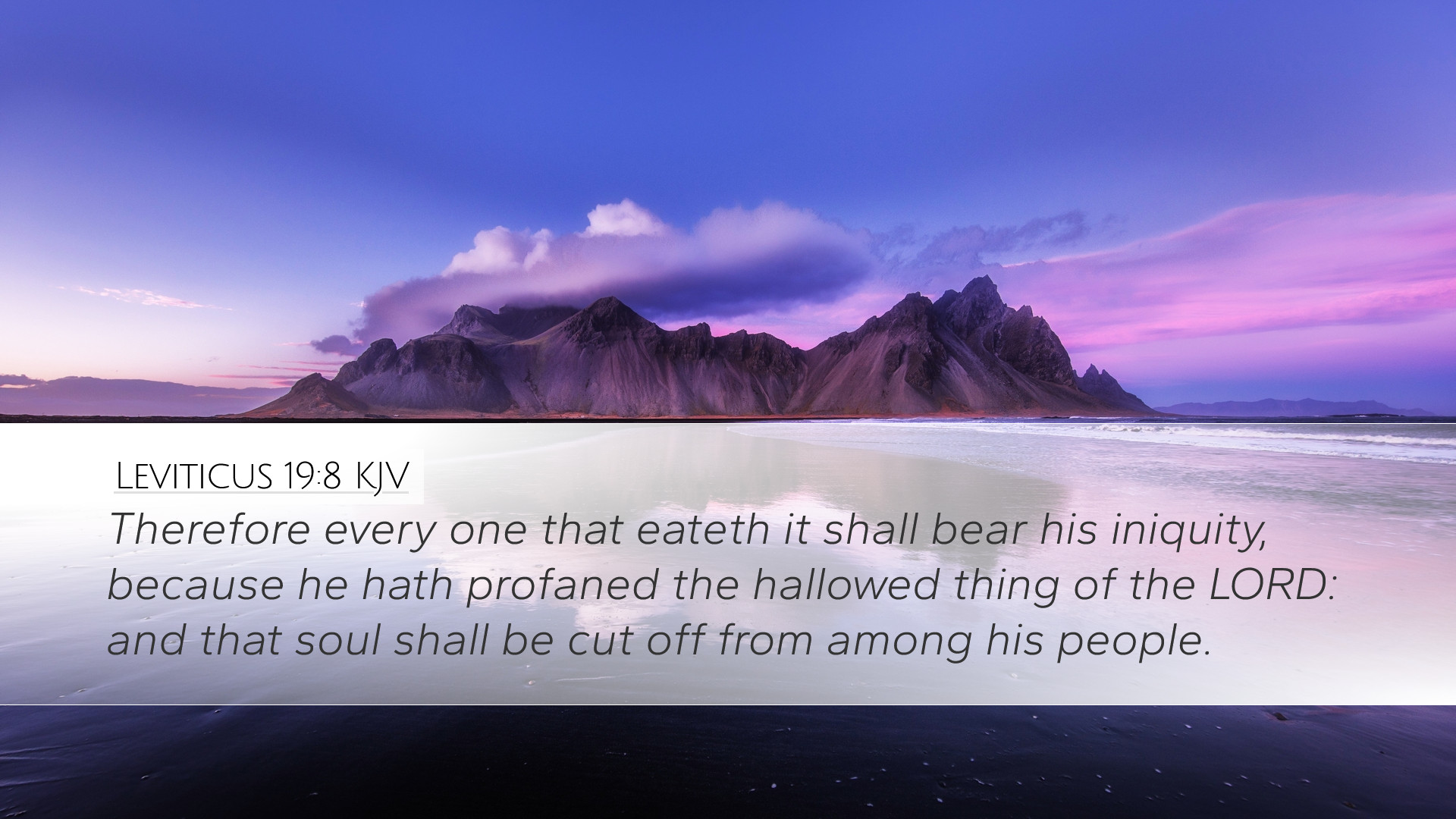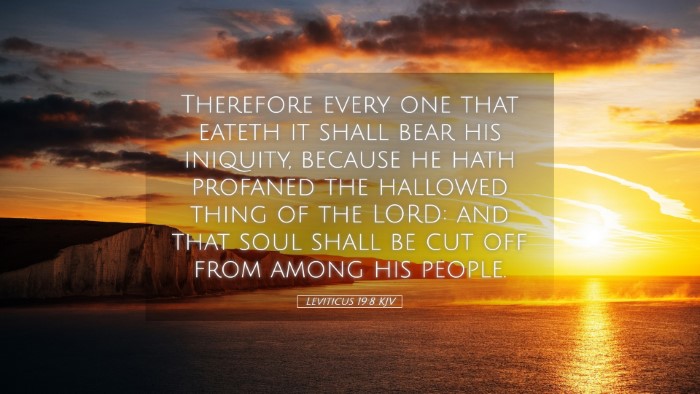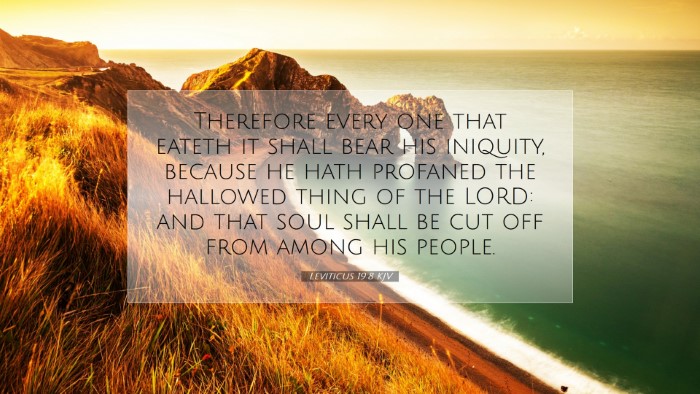Commentary on Leviticus 19:8
Verse Reference: Leviticus 19:8 (KJV) - "Therefore shall ye keep my statutes, and ye shall not let your cattle gender with a diverse kind: thou shalt not sow thy field with mingled seed: neither shall a garment mingled of linen and woolen come upon thee."
Introduction
This verse is situated within a larger context of laws concerning holiness, social justice, and proper conduct in Israelite society. As interpreted through various public domain commentaries, it emphasizes the significance of separation and purity in various forms, extending from agriculture to personal conduct.
Matthew Henry's Commentary
Matthew Henry highlights the foundational principle of separation in these laws. He notes that the prohibitions outlined in Leviticus serve not merely as arbitrary rules but as divine instructions promoting a distinct identity for God’s people. The call to maintain distinctness—through the examples listed in farming and textile practices—reflects a deeper spiritual truth. Henry illustrates that mixing different kinds represents a compromise of purity, and God’s people are called to a higher standard in their community and personal lives.
- Spiritual Implications: Henry draws attention to the spiritual implications of this verse, suggesting that believers today must also strive for purity in their lives—both morally and spiritually.
- Community Reflection: He suggests that these laws reflect a larger community ethos where every person contributes to the communal identity as God’s chosen people.
Albert Barnes' Commentary
Albert Barnes provides a detailed explanation of the agricultural laws found in this verse. He defines the phrase "mingled seed" as a warning against the practice of cross-breeding crops. Barnes argues that this metaphor can be understood as a divine directive against moral and ethical compromise as well. He emphasizes that these laws were not mere ritual prohibitions but were intended to maintain the holiness of the people in their relationship with God.
- Distinctiveness in Practice: Barnes posits that these distinctions in practice serve to unify the community under God’s ordinance, aligning their social customs with divine expectations.
- Moral Lessons: He draws lessons from these prohibitions, urging believers to consider how they intertwine their lives with worldly influences, warning against the blending of secular and sacred.
Adam Clarke's Commentary
Adam Clarke expounds on the broader implications of the injunctions presented in Leviticus 19:8. He identifies several cultural and historical contexts that inform this text. Clarke relates that these laws reflect an ancient Near Eastern understanding of purity, which was essential for maintaining a vibrant relationship with God.
- Natural Order: Clarke emphasizes that these prohibitions speak to a divine order in creation itself, asserting that God designed each creature and seed to have its own unique nature and purpose.
- Applications for Today: He extends the application of this verse to both personal morality and ecclesiastical practice, arguing that a failure to maintain distinctiveness leads to spiritual dilution and impairment of worship.
Theological Significance
The theological significance of Leviticus 19:8 unfolds through the lens of covenant theology. This verse not only indicates dietary and agricultural practices but also reflects the heart of God’s covenant with Israel—the call to be holy as He is holy (Leviticus 11:44). The separation from diverse kinds serves as a metaphor for the separation from sin, idolatry, and anything that might compromise the integrity of the faith community.
Exegesis and Application
In exegesis, the focus brings to light how ancient laws can find relevance in modern Christian living. While the literal application of these agricultural laws may not directly translate to today’s practices, the principles of holiness and distinction remain vitally important.
- Holiness in Conduct: How do believers today ensure they are not 'mingling' in practices that compromise their faith?
- Church Purity: How does the church maintain its distinctiveness in a culture that increasingly blurs the lines between sacred and secular?
- Integrity of Worship: The call of the church to come out from worldly practices and maintain holy worship can find its roots in the truths ensconced in Leviticus 19:8.
Conclusion
As pastors, students, theologians, and scholars delve into Leviticus 19:8, the insights provided by Henry, Barnes, and Clarke serve to enhance our understanding of the principles of holiness, separation, and community identity. These reflections invite deeper contemplation on how these ancient truths can manifest in the life of modern believers as they strive to embody God's distinct nature in a diverse and often conflicting world.


